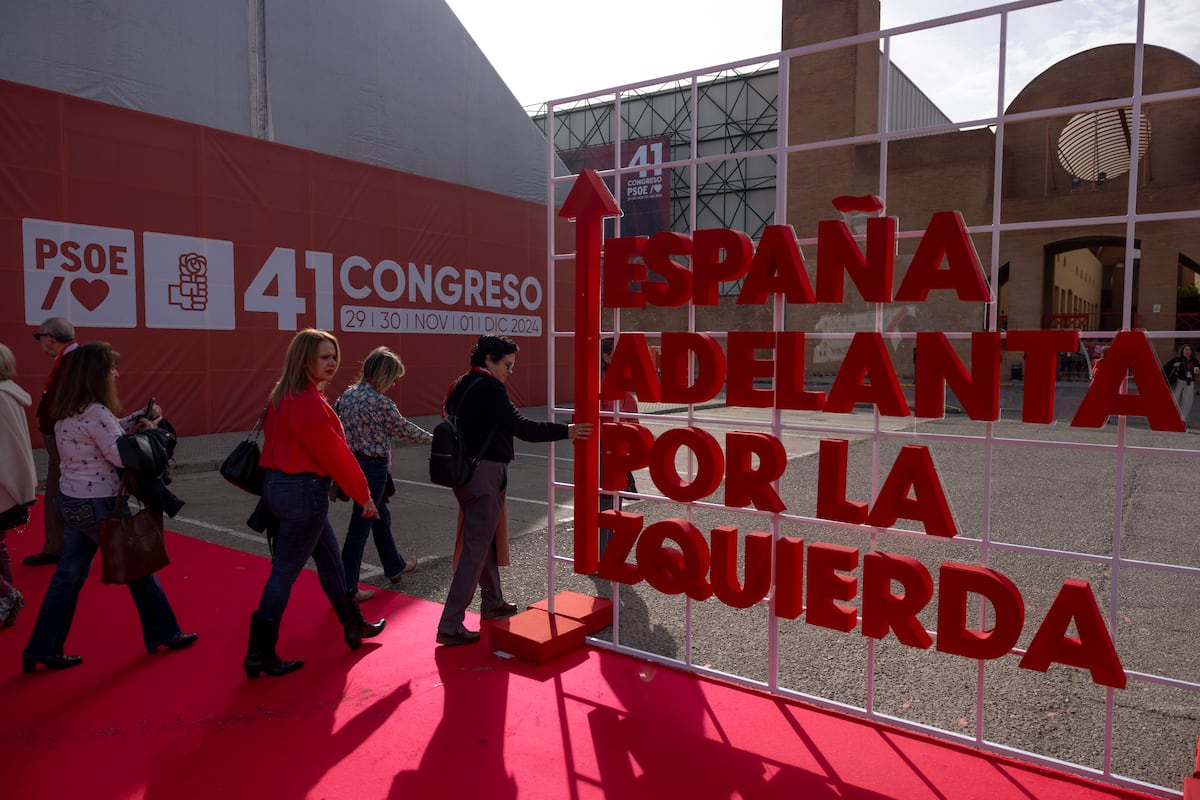Frustration took over the PP after elections in which everything was blowing in its favour against a worn-out Government. The resistance of the socialists went beyond what could be expected.
Against the odds, they managed to stay in power. But his euphoria faded within months. The PP did not give up and raised the volume of the opposition.
The far right had powerful ammunition: the party in power began to grow scandals every day, and the courts took a leading role in the political battle. The PSOE faced an ordeal. More than governing, all his time was spent defending himself against terrible accusations.
It seems like we’re talking about today, but all this happened 30 years ago. It constituted the agony of what then it was called felipisma label that, very similar to its current transcript of sanchismo, tried to evoke a way of doing politics characterized as a compendium of vileness. That lasted three years and ended the career of Felipe González, who, in an irony of history, today serves as a banner for the champions of anti-Sanchism.
Obviously, there are substantial differences between what happened in the mid-1990s and today’s climate of turmoil. The main one, the magnitude of the scandals. Those then were more numerous and of incomparable severity: state terrorism (GAL), illegal financing of the PSOE (Filesa), kleptomaniac feasts of prominent figures in power (Luis Roldán…).
Today we find ourselves with a scandal of a severity that is difficult to minimize (the Koldo/Ábalos) and, behind it, a set of nebulous judicial investigations in which the alleged criminal matter is not fully discernible. But the general picture raises a breast deja and invites us to recover that saying that history does not repeat itself, but it rhymes.
As then, the PSOE heads a weak Government, at the mercy of the parliamentary support of Catalan and Basque nationalists. And, as then, the political agenda is no longer decided in La Moncloa or in the Congress of Deputies, but in the courts of justice and the media editorial offices. Just as today there is undoubted activism by some judges in proceedings that harm the Government, at that time a group of prosecutors from the National Court, known as the “indomitables”, became famous, openly hostile to the Executive.
So what happened last week, prior to the Federal Congress of the PSOE, shows how Pedro Sánchez and his party are living at the risk of judicial decisions. So much so that it was these actions that triggered the sudden resignation of the until now leader of the Madrid PSOE, Juan Lobato.
On Thursday the 21st, the explosive statement of businessman Víctor de Aldama was known. On Monday the 23rd, Supreme Court judge Ángel Hurtado, who is investigating the alleged leak of secrets from the State Attorney General, called Lobato to testify, with unusual speed, after reading information that same day in Abc in which this seemed to implicate a senior official from La Moncloa in the case.
Also on Monday, a report from the UCO of the Civil Guard was made public that grants the head of the public ministry, Álvaro García Ortiz, a “preeminent” role in the leak of documents about the tax investigation of Isabel Díaz Ayuso’s boyfriend.
On Wednesday, a judge from Badajoz called for David Sánchez, the president’s brother, and the leader of the Extremaduran PSOE to be declared as accused. On Thursday, Judge Juan Carlos Peinado summoned an advisor from La Moncloa in the case of Begoña Gómez. On Friday, Lobato, already resigned, went to the Supreme Court. In between, Aldama gave interviews and several media outlets published leaks of private conversations of the same prosecutor accused of leaking.
Meanwhile, the PP paraded through the investigation commission of the Koldo case in the Senate to three ministers, in appointments calculatedly scheduled for the eve of the socialist congress. “A synchronization of chronometers,” ERC senator Joan Queralt ironically said.
The feast of anti-Sanchism has been tremendous. The PP concluded the week with a statement—now called “source statements”—mocking the socialist congress under the title “Minute and accused.” “There is no truce. Every day a scandal,” proclaims Alberto Núñez Feijóo with a studiedly serious gesture, while his people exude euphoria.
Among conservative opinion, there is already speculation about the possible indictment of the president and there is an attempt to set a date for the end of Sanchismo (it is true that some They have been certifying it for years). In Parliament, the leader of Vox, Santiago Abascal, states that he would only be satisfied with seeing him in jail. More restrained, the popular Cayetana Álvarez de Toledo illustrates to the chamber: “An alleged criminal [Aldama] He has more credibility than a president. Of course this is an alleged president.”
The number two of the Government and the party, María Jesús Montero, insisted this Friday upon her arrival at the Seville congress that the socialists are “calm.” It is the way they have found to ensure that in the end the accusations will be proven false. Even if that were the case, the distance until then is presumed to be long.
There are few reassuring signs for the PSOE. Sánchez has completely lost the initiative and control of the political agenda. And nothing indicates that it can be radically disrupted in the short term. Among other things, because it depends on agents that escape the will of the Executive: the courts and the media, two instances that feed on each other.
Following the parliamentary spokesperson of the PP, Miguel Tellado, on social networks is like subscribing to an anti-Sanchism press magazine. There is no imputation of any outrage to the Government that Tellado does not echo, regardless of the media that publishes it and its veracity. Feijóo’s trusted man expressed it clearly weeks ago before the microphones of Federico Jiménez Losantos (a veteran of the battles of the 90s):
“Our obligation is to end this Government as soon as possible and We are going to do it with all the means at our disposal.”. These last words bring to mind Luis María Anson, former director of Abc, who, years after the offensive against González, confessed that “the stability of the State was touched” and apologized: “There was no way to defeat it with other weapons.”
Another who is still there three decades later is Miguel Ángel Rodríguez. Today in a more secondary role, although sufficient to announce judicial decisions in advance or threaten the State Prosecutor without anyone coughing at him. He has even coined a war cry: “Pa’lante”.





